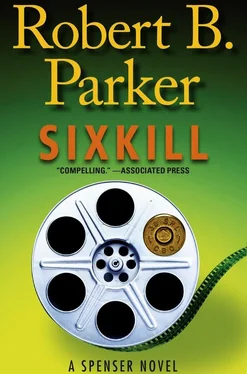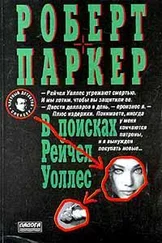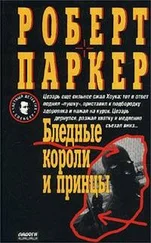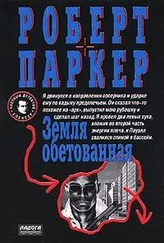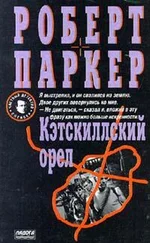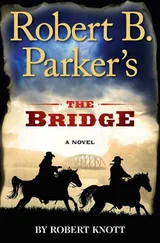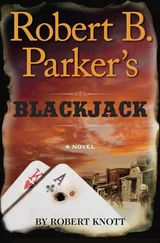“No.”
“Do you actually know what calculus is?” Susan said.
“No.”
“Me either,” she said.
“And you a Harvard girl,” I said.
“It’s distasteful, isn’t it?” Susan said.
“Calculus?” I said.
“That, too,” she said. “But I meant the lawsuit.”
“Distasteful,” I said.
“Yes,” Susan said. “I mean, I know it does the dead daughter no harm, and they might need the money, but... would you do it?”
“No.”
“I’d do it to try and get even,” Susan said. “For revenge. But for the money? No.”
“Maybe they’re doing it for revenge,” I said. “Maybe they’re trying to goose the criminal justice system.”
“Or maybe it’s the money,” Susan said.
“Maybe.”
We were quiet for a time, looking at the gulls and the boat traffic, and the cityscape across the water.
Susan said, “Something I keep meaning to ask you. It doesn’t seem important, which is why I probably keep forgetting, but it’s bothered me since you started talking about the case.”
“Maybe you keep forgetting because you are lost in adoration of me,” I said. “And it preoccupies you.”
Susan nodded.
“That is often a problem,” she said. “But in those moments when I can focus elsewhere... As you recall, I used to live in Smithfield.”
“I believe it’s where we met.”
“Yes,” she said. “Anyway, I always have wondered how she got from Smithfield to Boston.”
“Dawn Lopata,” I said.
“Yes.”
I was silent for a moment.
Then I said, “Why do you ask?”
“Well, there’s no public transportation in Smithfield. She’d have to drive. And if she drove, where’s her car?”
“Maybe she went with friends,” I said.
“The day she met Jumbo,” Susan said, “wasn’t she with college friends who live in Boston?”
“Yes.”
“So?”
“Maybe they picked her up,” I said.
“Maybe,” Susan said. “Either of them own a car?”
“I don’t know,” I said.
“Another thing,” Susan said, “that makes me wonder, is what I know about girls.”
“You’ve had some experience at being one,” I said.
“And treating many,” Susan said. “I think if she were going to visit a movie star in his hotel room, she would go home first and shower and put on clean clothes as appropriate.”
“You think?” I said.
“If nothing else,” Susan said, “she’d want to shave her legs.”
“Maybe she did all that in the morning, before she went to see the shoot,” I said.
“On the off chance that one of the movie stars would invite her to his room for sex?” Susan said.
I shrugged.
“Ever hopeful?” I said.
“That could certainly be described as optimistic,” Susan said.
“It could,” I said.
“Probably nothing,” Susan said. “But I’m curious. And I wanted to mention it.”
“I’m curious, too,” I said.
“Good,” Susan said.
I had finished my beer.
“Shall I get us another drink?” I said.
“No,” Susan said. “I think I need you to take me home, now.”
“How come?” I said.
She smiled at me the way Eve must have smiled at Adam when she handed him the apple.
“I want to shave my legs,” she said.
I called the Smithfield police and talked with a cop named Cataldo, with whom I had done some business years ago. He confirmed that there was no public transportation.
“Cabs?” I said.
“Not in town.”
“Doesn’t anyone want to leave?” I said.
“They drive,” Cataldo said. “And good riddance.”
“If you wanted to get into Boston and you didn’t have a car, how would you get there?” I said.
“Why would I want to go to Boston?”
“See a ball game?” I said.
“That’s why they make TVs,” Cataldo said.
“Because you are a sophisticated urban guy?”
“Like you?”
“Not that sophisticated,” I said. “How would you get here?”
“Borrow a car or get somebody to drive me.”
“Thank you,” I said. “If you never leave town, what do you do there?”
“Write parking tickets, keep the kids from loitering on the common, play softball, drink beer, bang the old lady.”
“What else is there,” I said.
“This about the kid got killed?” Cataldo said. “Dawn Lopata?”
“Yes,” I said. “Know her?”
“Sure,” Cataldo said. “Not a bad kid, really, just a fuckup. Always getting caught for something, like smoking dope in the girls’ room at school, or cell-phoning nude pictures of herself that ended up on the Internet, or skipping school, or driving after-hours on a learner’s permit. You know? Not evil, just fucked up.”
“How about the family,” I said.
“Old man’s a blow,” Cataldo said. “Big house, nice car, and no cash. You know the type?”
“Sure.”
“Mother stays home mostly; she used to call a lot, see if we knew where her daughter was. Don’t know much else about her.”
“Older brother seems fine,” I said.
“Yeah, good grades, played sports, went to Harvard,” Cataldo said. “I don’t know how he escaped.”
“No trouble with the law,” I said.
“Except for what I told about Dawn, none of them.”
“You know what they got for cars?”
“Yeah, he just got a new one, and was blowing off to me about it.”
“What kind?”
“Cadillac DTS, maroon.”
“The big sedan?”
“Yeah, top of the line,” Cataldo said.
“Anything else you know?”
“Lots,” Cataldo said. “But not about the Lopata family.”
After I hung up, I called Dawn’s friend Christine. They had left Dawn after they lunched with Jumbo. Neither Christine nor James owned a car, and neither she nor James knew how Dawn traveled to Boston on the day of her death.
We were driving on Atlantic Ave.
“You doing any juice these days?” I said to Z.
“At Cal Wesleyan, we called them PES,” Z said. “Performance-enhancing supplements.”
“Still using?” I said.
Z shook his head.
“Not since Jumbo fired me,” he said.
“What made you quit?” I said.
Z grinned.
“A great truth was revealed to me,” Z said.
“Which was?”
“He was my supplier,” Z said.
“How long you been doing them?” I said.
“Freshman year,” Z said. “Playing, you know, like, majorleague college football, you seem to need them to keep up. Guy you’re competing with for the starting job is using. The pass rushers are using. The DBs on the other side are using.”
“Who was your supplier then?”
“One of the alums,” Z said. “Fella named Calhoun, was paying my way, he used to get them for me.”
“Part of your scholarship,” I said.
“Scholarship, hell,” Z said. “I was on salary.”
“Don’t seem to need them,” I said.
Z nodded.
“Always been a big, strong mofo since I was a papoose,” he said.
“Papoose?” I said.
“Authentic Injun talk, Kemo Sabe,” Z said.
“Christ,” I said. “And I’m still learning to say ‘Native American.’ ”
We pulled up in front of the Inn on the Wharf, where Dawn Lopata had died. The doorman came to the car. He was a sturdy young guy, and his nameplate said Mike. I gave him a twenty.
“Can we talk for a moment?” I said.
“Sure thing,” Mike said.
“Name’s Spenser; I’m working on the Dawn Lopata death,” I said.
“Sure,” Mike said. “Seen you here before.”
“My associate, Mr. Sixkill,” I said.
Mike nodded at Z.
“You remember her?” I said.
Читать дальше
